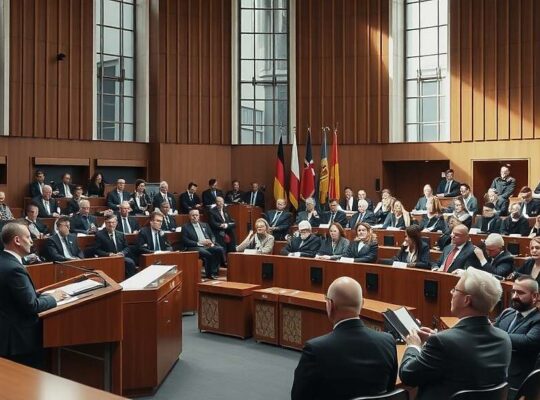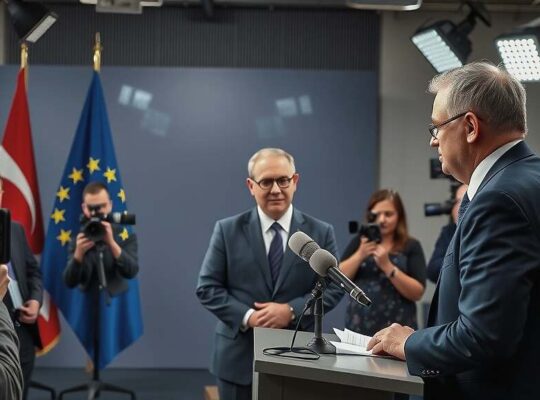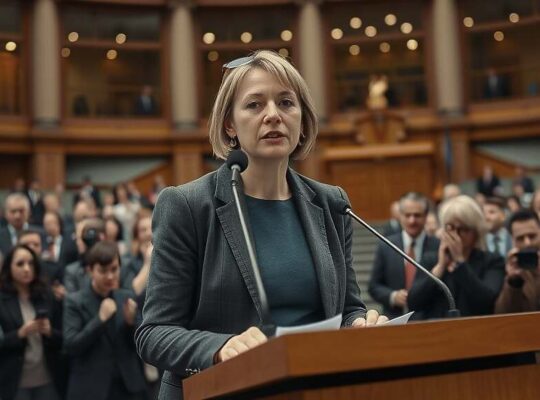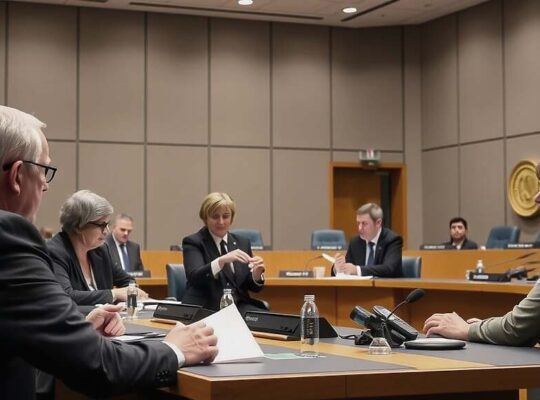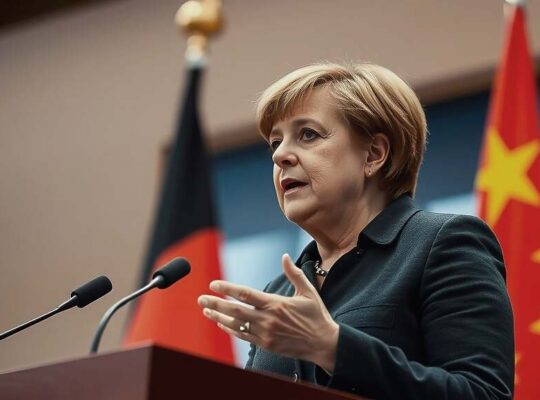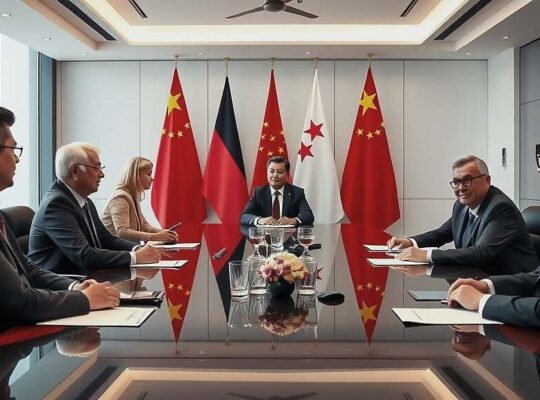The European Union’s political landscape faces renewed scrutiny as Katarina Barley, the EU Parliament’s Vice-President, publicly criticized the influence of so-called “fun parties” and advocated for the implementation of a five percent threshold for participation in European elections. Barley’s remarks, made in a recent podcast interview, highlight a growing concern over the legitimacy and gravity of the European Parliament’s proceedings.
Barley’s argument centers on the perception that certain fringe political groups, gaining entry through the absence of a minimum electoral threshold, undermine the seriousness of the institution. She specifically referenced “Die Partei” a satirical political group led by Martin Sonneborn, whose unorthodox voting record has drawn criticism from mainstream politicians. While acknowledging the Federal Constitutional Court’s previous reluctance to impose a barrier, she argues that the current system disproportionately impacts larger nations.
“Länder like Malta or Luxembourg have only six representatives for the entire country” Barley stated. “It simply isn’t equitable when countries like Germany, with considerably larger populations, are forced to allocate parliamentary seats to groups that, frankly, seem more intent on creating disruption than contributing to meaningful policy solutions.
Her call for a five percent threshold mirrors the existing requirement for representation in the German Bundestag, the national parliament. Barley contends that if a minimum level of public support is deemed essential for German parliamentary legitimacy, the same standard should apply within the European Parliament to foster a greater sense of respect and substantive contribution.
The debate underscores a fundamental tension within the EU’s democratic structure. While barrier-free access to the parliament theoretically promotes inclusivity and allows for unconventional voices, critics like Barley worry that it dilutes the institution’s authority and undermines the serious challenges facing the Union. The proposal is likely to ignite further discussion about the balance between representation and stability within the European Parliament, potentially reshaping the future political dynamics of the bloc.



